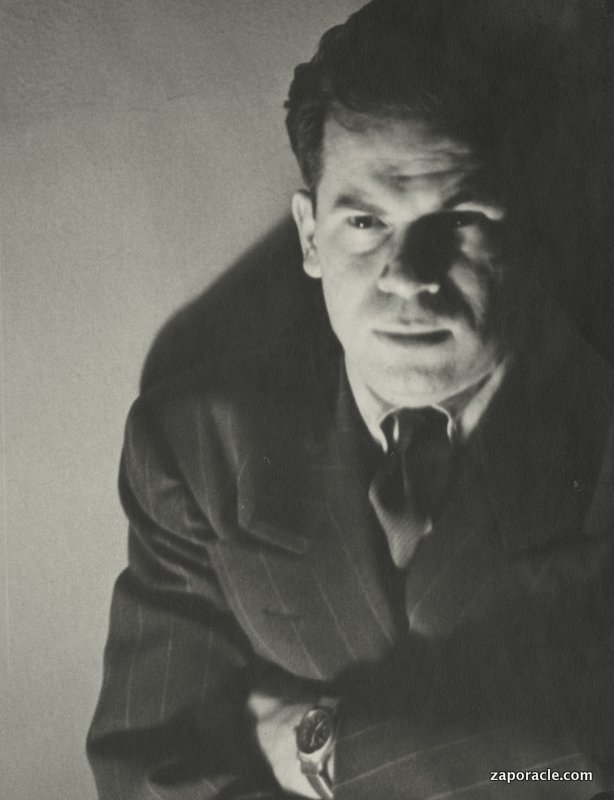
I caught an early flight to NYC and arrived a few hours before my dad’s death and was there with him and my mom when he drew his last breath. It was all very peaceful. Death is not always tragic. Nathan was 93 and left just the way he wanted to—at home, with my mom holding his hand, no medical intrusions, a graceful and dignified end. No need for condolences.
My mom wants everyone to know that she feels happy and relieved because of how well things ended. She is emotional, but not grieving in any sort of a painful way and instead says she feels “tears of joy” at the poignancy of the moment and gratitude for 62 years of marriage. Neither of us finds it appropriate when people talk about his death as a “misfortune” or as if it were something that shouldn’t have happened.
Although dementia is presented as a boogey man, in some ways it seemed like a graceful, incremental way for him to withdraw from life. Nathan had an intense fear of death since he was a child and heard about someone dying in his sleep. As a result of that episode, he developed a lifelong fear of sleep. He avoided sleep for most of his adult life and that probably contributed to the dementia. Also, near the end of the war, he experienced the sudden, unexpected death of his mother and that was followed closely by D Day, where he was a medic and experienced death in its most shocking and gruesome aspect.
So dementia allowed for a gradual, incremental withdrawal. Ego identifications that some might detach from through meditation or spiritual practices (which he didn’t believe in) were accomplished neurologically. My mom noticed many signs of spiritual development in his last couple of years. For example, in 1975, when I was thinking about transferring to another college, my dad tried to sell me on going to school to be an insurance actuary—someone who figures out the odds that a life insurance policy will be profitable for an insurance company before they have to do a payout and so forth. In other words, he completely misunderstood the essence of who I was and what would be an appropriate life for me. Like many men of his generation, or most generations, grim practicality predominated in his thinking over more feminine and spiritual considerations. But just about three weeks ago, he got a visit from his niece, Rhonda, who is still in high school, and when she asked him what thoughts he had about her future, he replied, “Do what you love.”
He was still able to make self-aware, and sometimes profound statements, right up until the time when he lost waking consciousness a few days ago. (See No Safe Walk through Life —-a brief essay I wrote about Nathan based on something he said a couple of months before his death— for an example of one of these profound statements.)
After many days of being bed ridden, he expressed enthusiasm for going out on the porch in the sun and it was a particularly beautiful day. As he sat out there with hat and sunglasses on, my mom told him she would bring breakfast outside. It was while he sat in the sun by himself that he withdrew from waking consciousness. Of course there was some sort of stroke, but I like to think there was an element of choice. There have been so many reports, throughout the ages, of people, close to a transition anyway, exerting an element of choice about the timing of their deaths. So I like to think that, as he sat in the beautiful sunshine on the porch, he made a choice to withdraw further from a failing body.
Although he never regained consciousness, he lived for a few more days, giving everyone time to compose their thoughts and say final goodbyes. His last breaths were quite peaceful, and there were none of the signs of agitation that the hospice workers had prepared us for. Although Nathan was not religious, he was very connected to Jewish culture, and his last breath came just a couple of hours after the end of Yom Kippur, the day of atonement, the holiest day of the Jewish calendar.
“For on this day He will forgive you, to purify you, that you be cleansed of all your sins before G-d.” (Leviticus 16:30 on Yom Kippur).
Epilogue
The following is not presented as evidence of anything. It is left to the reader to interpret it variously as the result of mundane causes, coincidence, synchronicity or divine communication.
The night before the funeral, my mom, while upstairs in her bedroom, distinctly heard my dad’s voice call out, “Bernice!” The voice sounded strong, unlike my dad’s quavering voice near the end of his life. The tone was not one of alarm but as if he were calling her attention to see something interesting. My mom reported the event to me but didn’t make much of it, saying she was “too much of a materialist” to take it seriously. With more than four decades of clinical experience in psychology, she felt it could be explained in a variety of ways.
The morning after my dad’s funeral, I woke up shortly after sunrise in my parent’s house. My mom was still sleeping as I walked through the first-floor hallway, where I saw that sunlight, streaming through a prism in the kitchen, was throwing a very bright rainbow of colors on the hallway carpet. Always interested in optical effects, I looked at it for a moment and saw that a new rainbow was now appearing on the front door of the house. The kitchen window was at the opposite end of the house so the light was being projected across the full length of the house, which was at least sixty feet. I had my Iphone in my pocket and began taking pictures.
(Light streaming through a dusty prism hanging amidst a tangle of plants in a kitchen window which is about sixty feet from the front door at the opposite end of the house.)
(Prism rainbow projecting onto the inside part of the front door of the house. The front door has four small, arched windows at top, and is located in a small foyer. There is a mirrored wall to the right.)
As I looked at the rainbow on the door, I was astonished to see that the silhouette of a man with a hat and a stick was starting to form in the colored spectrum of light. As I looked at the image the silhouette of the man quickly became much more distinct.
The image grew very large until it became a nearly life size image of a man with hat and walking stick journeying out the front door into a rainbow of light.
(the man becoming nearly life size)
Looking back toward the source of the light, it was easy to see how the image was being formed. At the foot of the hallway staircase is a wooden column supporting the balustrade. At the top of the column was a foot-high, bronze statue of an iron worker. The prism, acting like a movie projector lens, was throwing a spectrum of colored light around the statue and the front door, acting like the movie screen, received the resulting image.
Light, including light refracting from the prism in the kitchen window, streaming down the hallway and around the small bronze statue at the top of the white, wooden column.
(The foot high, bronze iron worker statue seen from the side with prismatic light at its back and a grandfather clock in the hallway to the left.)
This statue had great emotional significance for my dad who really loved it. A few years ago, he paid an electrician to rewire it (an electric light that can be turned on inside—but which was off that morning— allows the block of simulated hot iron the worker is grabbing to glow). This showed his commitment to this object. Nathan probably had to swallow some pride to admit that he needed help with the rewiring as he used to make all sorts of sophisticated electrical repairs himself. He also grew up during the Depression and often went to great lengths to avoid an unnecessary expense. He frequently made admiring remarks about this beautifully made statue. The statue came with the house, and although it’s not uncommon for people to love their homes, for Nathan,he and the house were almost soulmates. I learned only a few days ago that the house was completed in 1920 so it was being built the same year as he was born (1919). The prism and the statute had both been in their places for decades, but no one had ever observed this extraordinary optical effect. It also seems interesting that he lost consciousness shortly after enjoying his first sunlight in many days sitting on the porch, and this occurrence was a sunlight-generated optical effect. Also very interesting is that Shirley, my dad’s niece, who is in her mid-eighties and whom I think of as an aunt though she’s actually a cousin, told me a story about my dad that reminded me of his role as a projectionist. (My dad was interested in optical effects, and we shared an interest in photography, camera equipment, and optics.) At a restaurant we went to after the funeral, Shirley told me that Nathan got a movie projector when he was a child and showed silent movies. He had Shirley collect the one penny admission fee from other children who came to see the basement projections.)I already knew that he was in charge of the audio-visual department at the Bronx High School of Science (where I was later a student) and maintained and set up their movie projectors. In his library, I found correspondence he wrote to the Bell & Howell movie projector division with technical questions. What makes this so appropriate is that the image, projected onto a white door, seemed so much like a movie projection image.
Front view of the iron worker statute—you can see the worker grabbing the glowing piece of iron (here I turned the light on) with large tongs which created the effect in silhouette, of a walking stick.
I stared at the image on the door in rapt fascination and then, like a time dialating interdimensional traveler, it elongated and disappeared as if it had phased through the front door and continued on its spectral journey.
Once before I was the only witness of a very improbable occurrence that happened in a way that it seemed like, I emphasize seemed, like a communication from the beyond the grave. I was able to photographically document that one too and described it in a few paragraphs here: Survival of the Soul. I think you’ll see a lot of parallels between these two occurrences.
See a gallery of Nathan’s paintings: Nocturnal Visions—the Paintings of Nathan Zap
No Safe Walk through Life —-a brief essay I wrote about Nathan based on something he said a couple of months before his death
Some thoughts on death, dying, near-death experience and the survival of consciousness: Life Lessons from the Living Dead
If you want to share a favorite memory about Nathan, or make a comment of any kind, please do so. We would prefer stories that captured his flawed, human actuality rather than sentimentalized idealizations.
 ZapOracle.com home to the free 720-card Zap Oracle
ZapOracle.com home to the free 720-card Zap Oracle

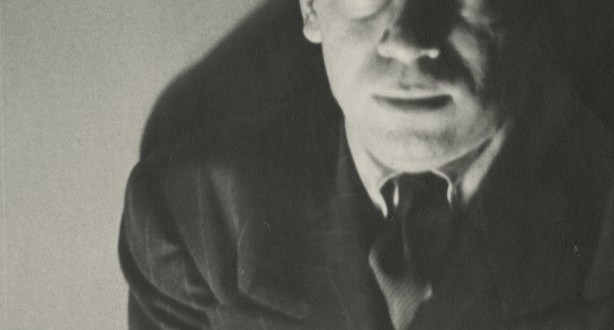
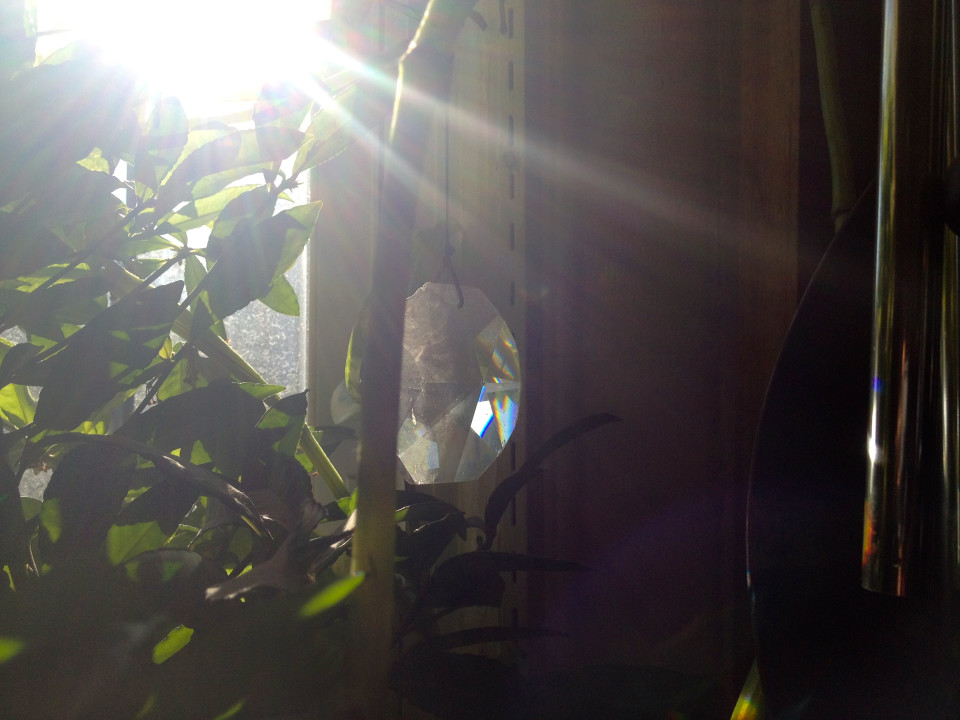
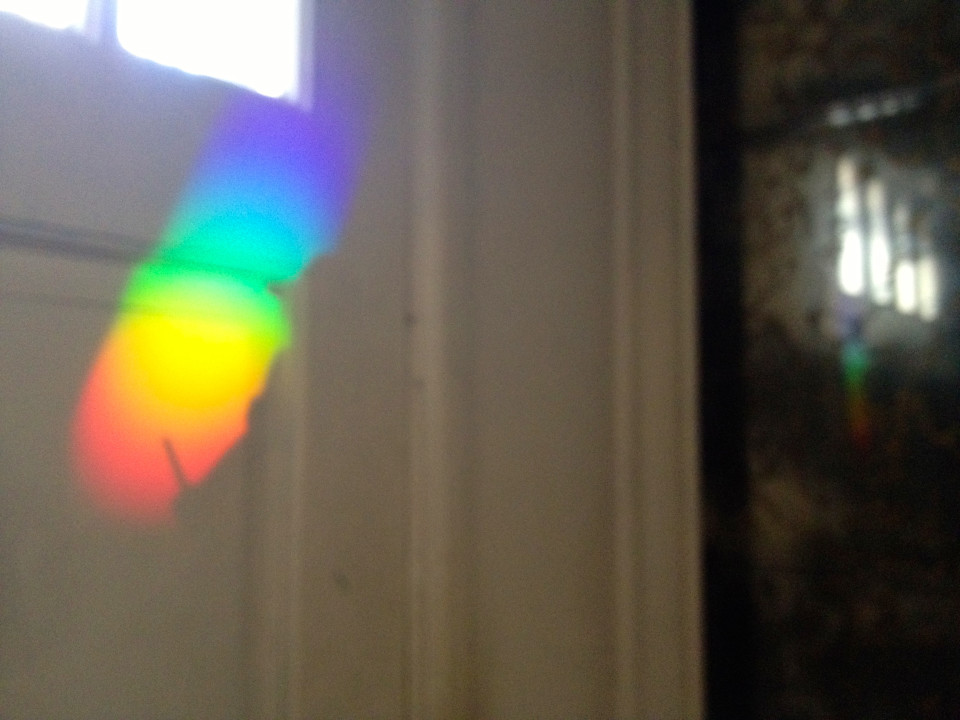
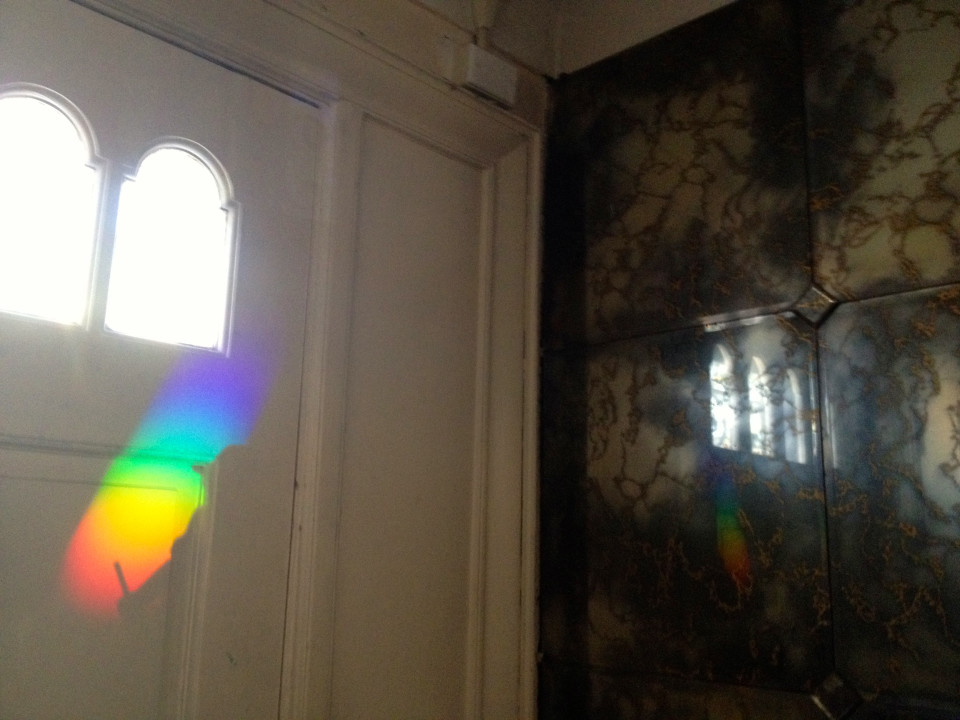
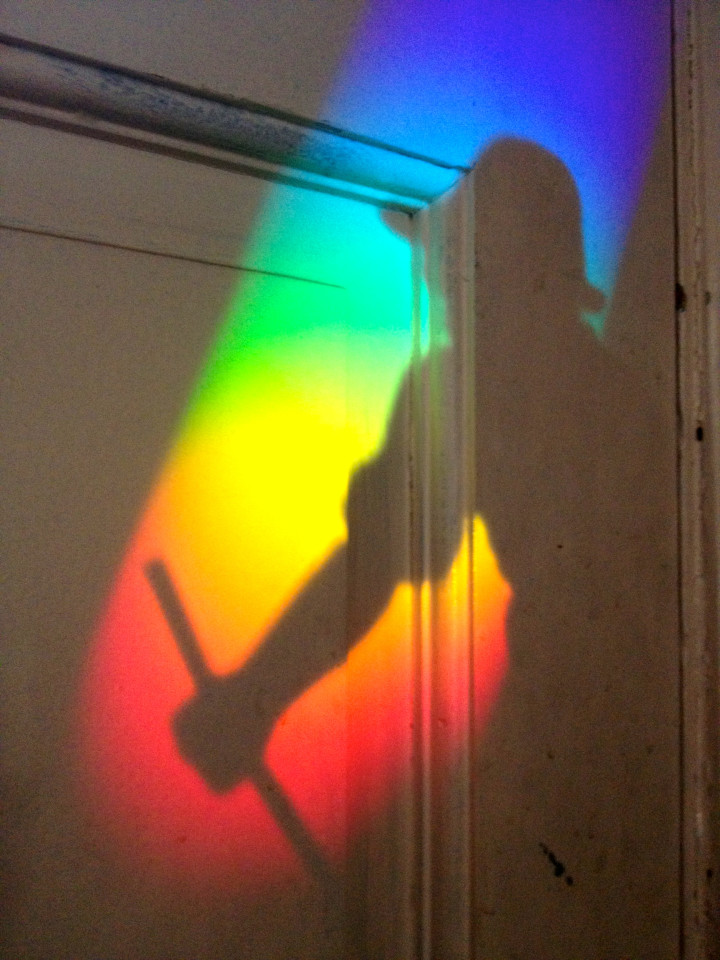
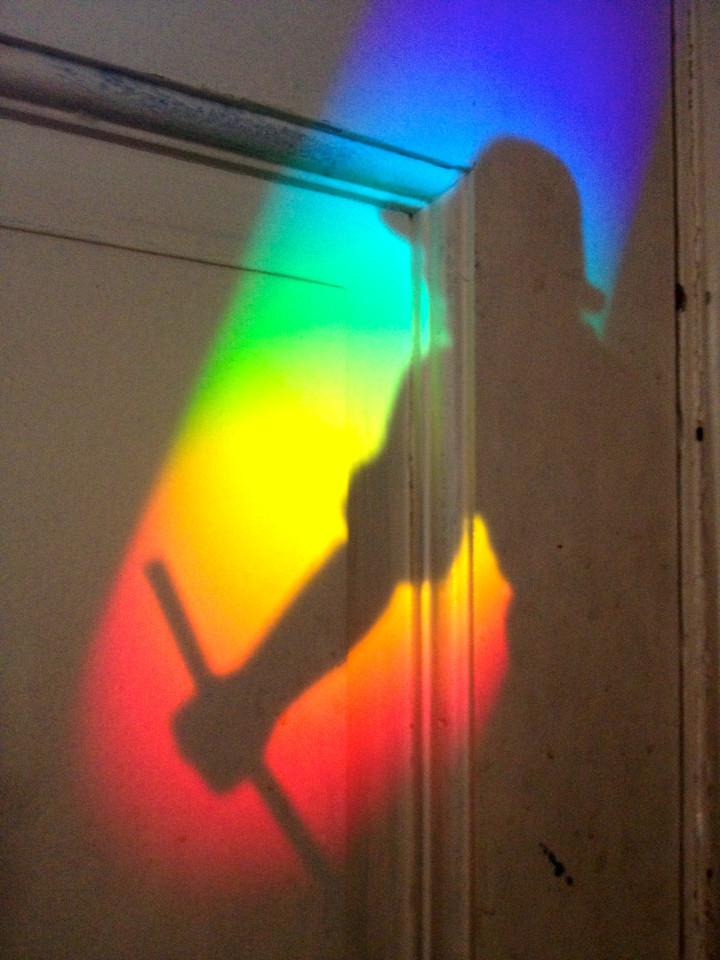
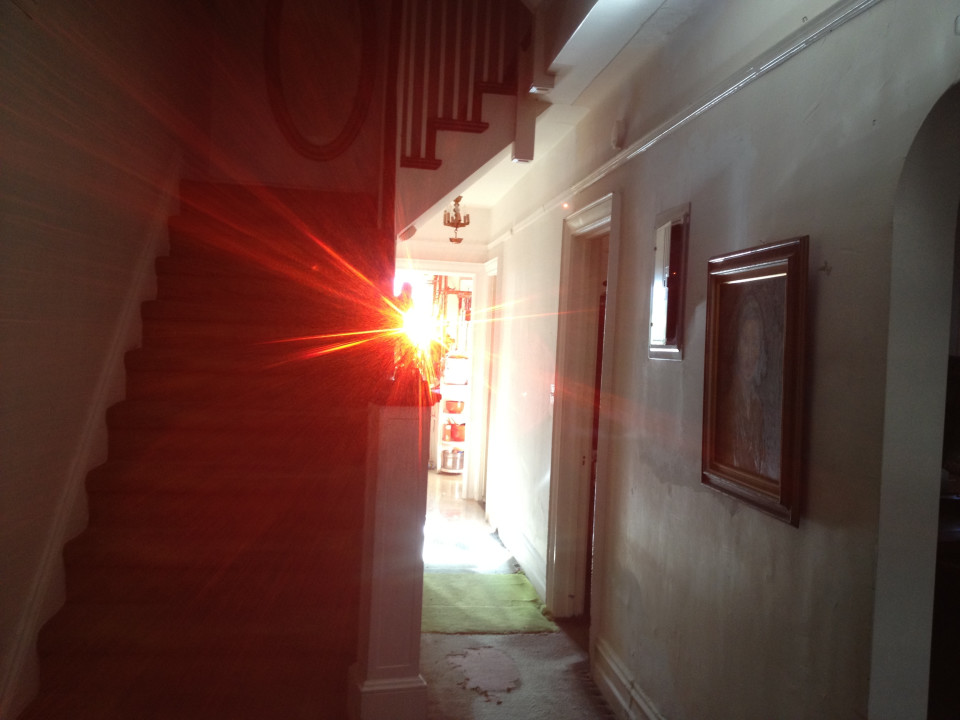
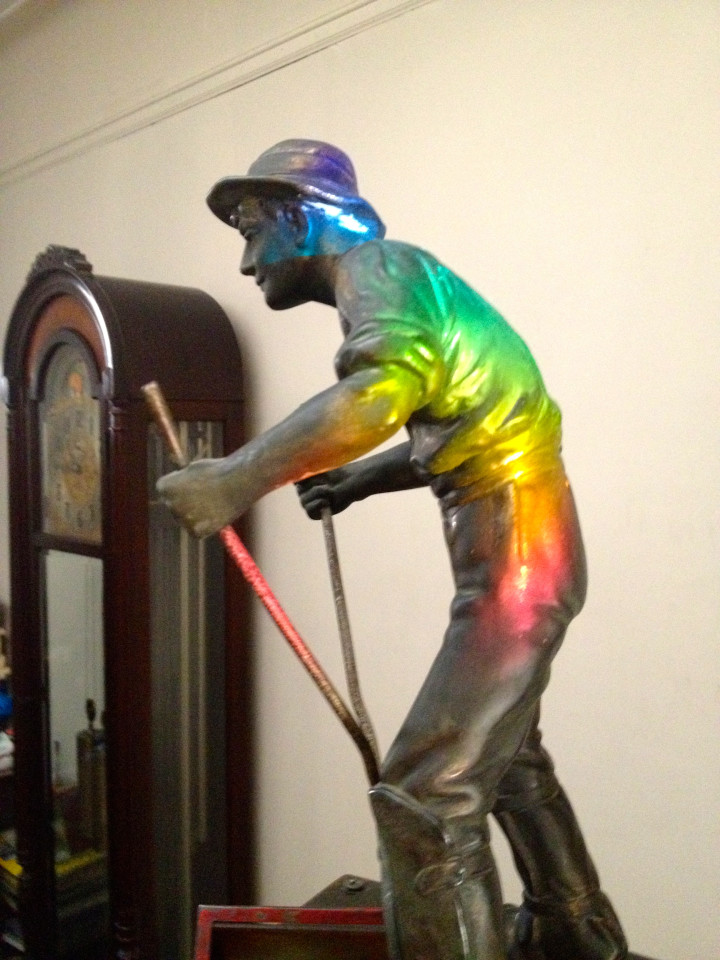
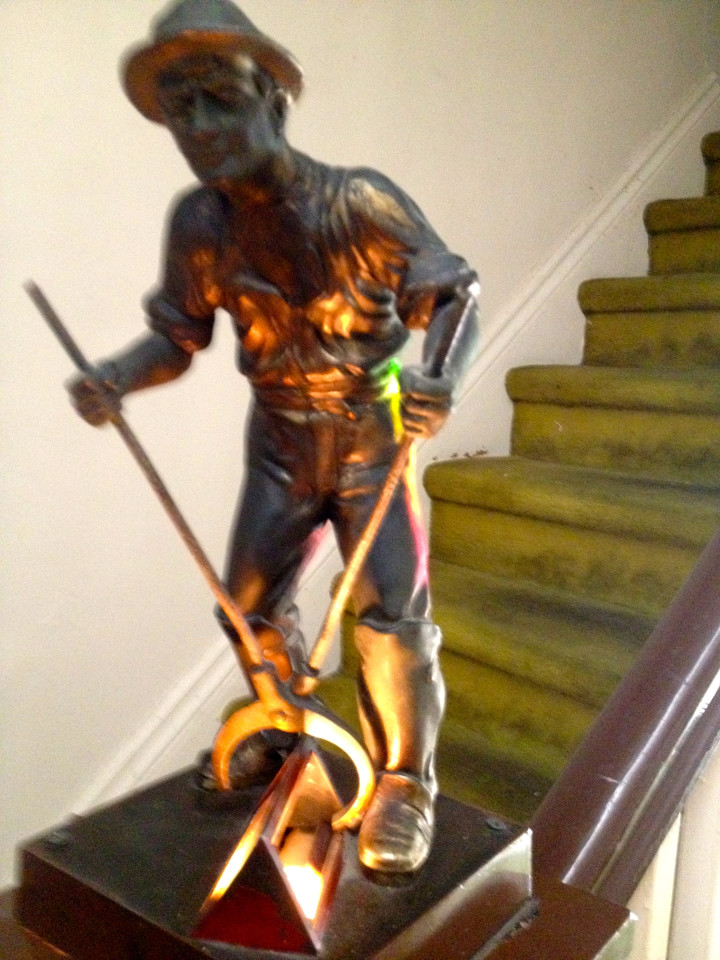
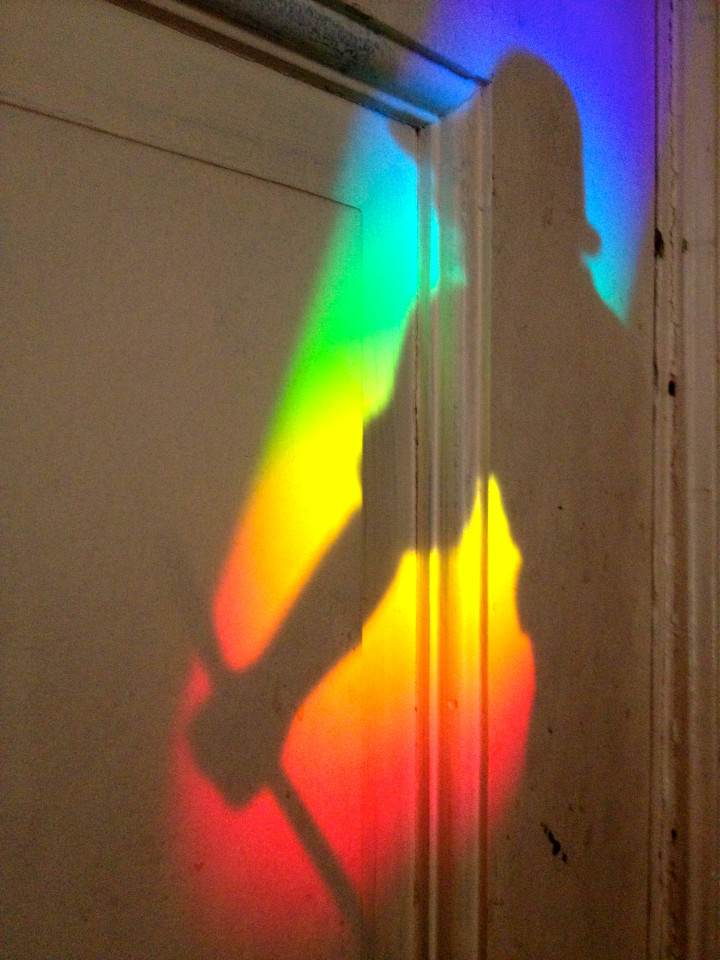

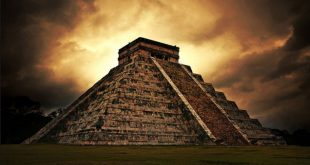
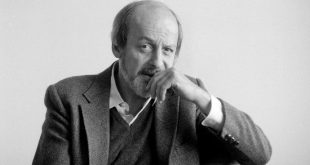


I will always remember Uncle Nathan when I was young reading the NY Times in the breakfast room in Bryant Avenue eating a turnip. Your loving niece Eleanor Schiffer
I have always had fond memories of long family visits in your incredible Bronx home. It was always relaxed and while we played (whatever it was we all played? ha!) in your basement, we could hear our parents engaged in an animated conversation about every topic you could think of! And I can still hear my Great-Uncle Nathan’s quiet chuckle as he led the conversation into something that caused everyone else to belly laugh!
I loved, admired, and respected him greatly. He was gentle, thoughtful, kind, brilliant, and truthful. I always felt especially connected to him in spirit because I, too, am a devout Jewish atheist. Belief in the supernatural has nothing to do with being a sensitive soul. Uncle Nathan was proof of that!
I loved, respected and admired my brilliant Uncle Nathan and will always cherish wonderful memories of our conversations along with all the holiday family visits to the Zap family Bronx home.
Bernice had a story she wanted to share about Nathan. When she sat with him on the final evening, a couple of hours after sundown ended Yom Kippur, his breathing became more and more shallow. Then there were two long breaths and he stopped breathing and she could tell that he wasn’t there anymore. His soul or essence departed, and though his body didn’t look very different, there was this perceivable difference. And this final moment brought back a memory of Nathan in 1974 when he sat with a large, orange cat named Beatrice who was dying. Beatrice was Jonathan’s cat, but he was away at his first year in college. It was clear that Beatrice was very ill, but Nathan and Bernice still had to go to their jobs, so they left her wrapped up in a warm place. When they got home, she was still alive, and although Bernice felt squeamish about death, Nathan sat close to Beatrice and stroked her head. Beatrice’s large, orange eyes gazed into his, and it was apparent that she saw him and was aware of him. Then there was a moment where her eyes became glazed. Bernice was aware that Beatrice wasn’t there anymore and that something had departed. It was the first time that she witnessed death, a soul departing from a body, and Nathan’s passing reminded her of it. But the story was also a reminder about Nathan in a different way.
Although Nathan was not religious, and was not always demonstrative about his tender feelings for those he loved, to those who really knew him it was clear that he was a highly ethical and caring man. His care extended to animals. In the 1950s and 60s when Nathan was a science teacher and lab assistant he objected to the unnecessary use of animals in experiments and to their being treated in ways that carelessly caused suffering. In 1977, when Jonathan became a vegetarian, Nathan and Bernice did too. Nathan never lectured anybody about it, but he felt strongly that it was the right thing to do. And this was very characteristic of Nathan. He didn’t make a show of being caring or ethical, but he was, and those were qualities he showed even in his final days, even as his cognitive faculties were slipping away, he still showed tender concern for the well being of others.
So we thank Nathan for his caring for others, a caring he showed as son, brother, cousin, uncle, husband, father and grandfather and as a World War II army medic, teacher, guidance counselor and active member of community organizations. Thank you for your caring and may we all learn from your example.